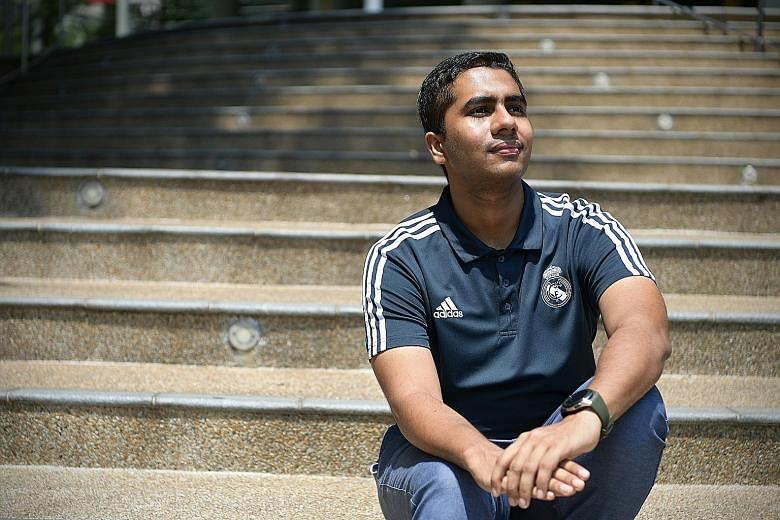A new local study has found that people with a religion enjoy better mental health.
The study, done by a team from the Institute of Mental Health (IMH) and Saw Swee Hock School of Public Health, set out to build upon limited research on the mental health benefits of religion, especially in the context of multicultural Asian populations like Singapore's.
"Our intent was to establish the relationships between religious affiliation, positive mental health (PMH) and mental disorders in Singapore," says lead researcher Janhavi Vaingankar, 45.
She says PMH generally refers to "a person's attitudes towards themselves, ability to handle life's surprises and ability to reach their true potential and resist stress".
Published in the International Journal Of Environmental Research And Public Health in March, the study is part of the 2016 Singapore Mental Health Study led by IMH to examine the state of mental health here. Information on participants' presence or absence of religious affiliations, mental disorders and PMH scores was collected that year.
The study, which analysed data from 2,270 participants, measured six aspects of PMH: general coping, emotional support, spirituality, interpersonal skills, personal growth and autonomy, and global affect, which is the experience of positive moods such as being calm and happy.
People with a religion were found to have a higher total PMH score, faring better in spirituality, emotional support and general coping.
As spirituality includes practices like prayer and religious beliefs such as trust in a higher being, it was not surprising that people with a religion had stronger spirituality, says Ms Vaingankar.
That people with a religion had stronger emotional support indicates that "interpersonal aspects of PMH are stronger among people with religious affiliations than those without".
The study, which did not find any evidence to suggest that mental disorders were more common in people without religious affiliations, comes as more Singaporeans report having no religion. According to Census 2020, the percentage of Singapore residents aged 15 and above who had no religious affiliation rose to 20 per cent last year from 17 per cent a decade ago.
For Nanyang Technological University philosophy student Amanda Choo, 24, her Catholic faith has given her a sense of hope and purpose, with friends in church providing comfort and support.
She often worries about her future. "I feel a lot of pressure to make the 'right' choice because I fear failure," she says.
However, she believes her faith helps her recognise the "purpose of a challenging situation", making her less likely to fall into despair.
Mr Ibrahim Sharul, 23, an information security student at the National University of Singapore, also feels that his religion, Islam, has helped him make sense of challenges he has gone through.
He struggled to make friends when lessons went online last year and his self-esteem took a blow. But a self-discovery programme helped him regain his confidence and he started to view experiences as learning opportunities. "This paradigm shift brought out by the ways God has tested me showed me my true potential and made me more grateful for everything," he says.
The study's findings have implications for national mental health promotion efforts, though the paper states that more studies can be done to assess the effects of religion on mental health.
The paper's authors wrote that mental health promotion can be targeted towards people without any religion given the "likely low overall PMH" of this group. "This could involve providing avenues for building social networks where they could develop positive and supportive relationships," says Ms Vaingankar.
Things that provide a person with a sense of identity, purpose and hope can also contribute to PMH, she says. These include developing a high self-esteem, having a positive outlook and keeping a healthy lifestyle, she adds.
Mr Vijay, who is in his 30s and declined to give his full name, believes that non-religious spirituality helped him cope with his mental disorder the most. He used to experience hallucinations and delusions and has largely recovered. In his darkest moments, he felt as if strangers could monitor his actions and read his mind. His condition often made him feel helpless and overwhelmed with anger, sadness and embarrassment.
But spiritual meditation helped him with healing. "Meditation calms me down and shifts my thinking, helping me learn to be thankful," says Mr Vijay, who is a Hindu.
Ultimately, having positive mental health is important, notes Ms Vaingankar. "It provides Singaporeans with the ability to deal with ups and downs in life, feel good about themselves and their life, and build close relationships."

